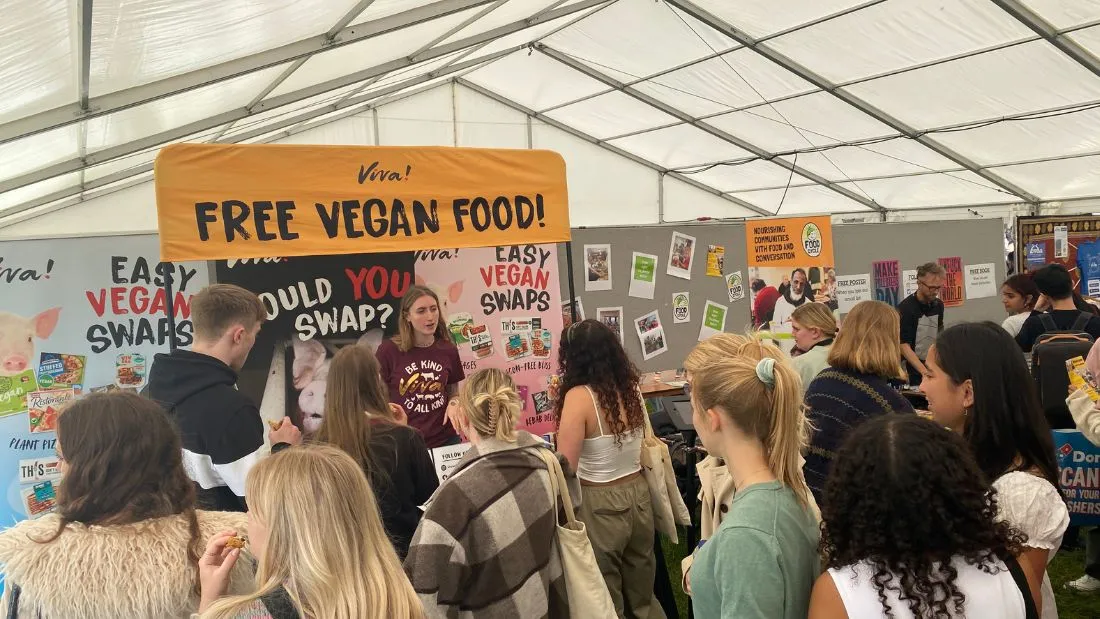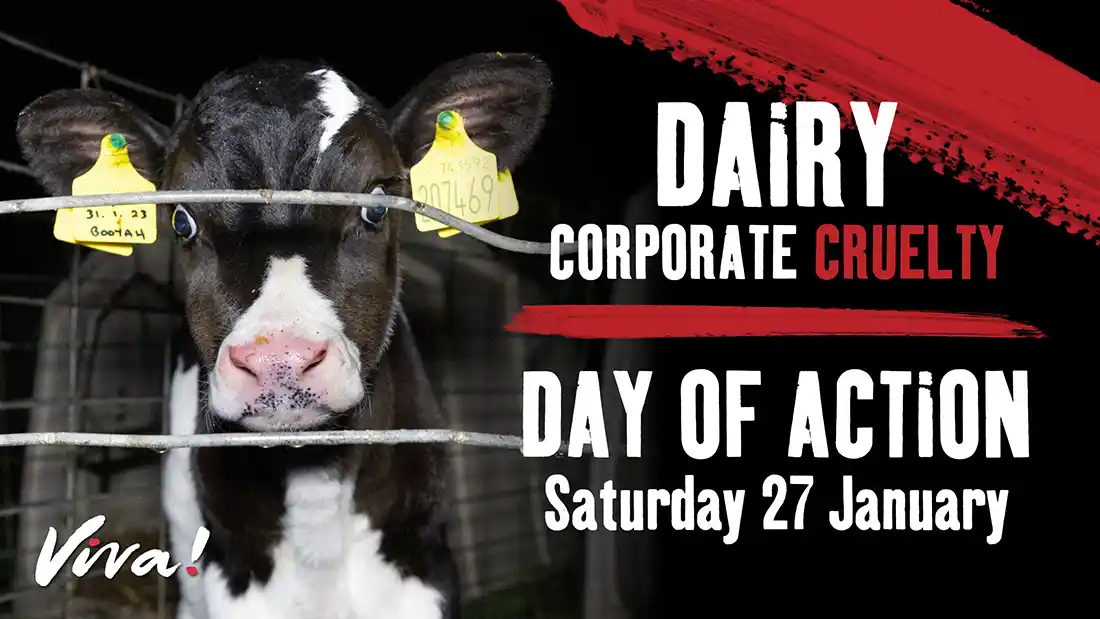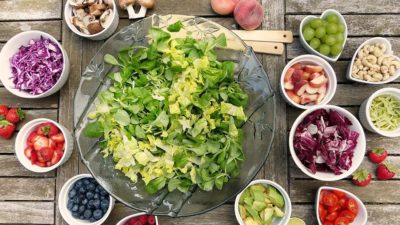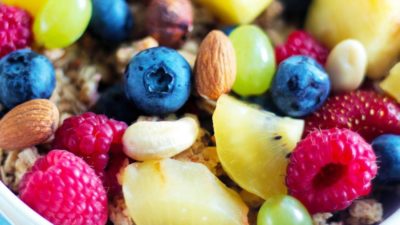10 Top Health Organisations that Endorse a Plant-based DIet

It seems as if the tabloid press likes nothing more than to give the vegan diet a good old bashing. Outrage sells newspapers and the press enjoys using veganism to fuel this fire. How often do you read an article, featuring a so-called ‘expert’, sowing the seeds of fear into anyone considering ditching meat and dairy? We are constantly told that a vegan diet results in all kinds of nutritional deficiencies such as a lack of protein, iron and calcium. God forbid you dare raise your child on a plant-based diet!
What most of these ‘experts’ fail to mention, is that the standard Western diet is already lacking in many nutrients. For example, according to the 2016 National Diet and Nutrition Survey, almost one in every two girls aged 11 to 18 are failing to meet even low iron targets along with over a quarter of women aged 19 to 64. It also found that a substantial proportion of adults had intakes below the lower recommended level for both selenium and zinc. According to the UK Scientific Advisory Committee on Nutrition (SACN), iodine intakes have also become inadequate for particular needs, especially during adolescence, reproduction and gestation and development. Perhaps the press should pay more attention to the many deficiencies of the average UK diet rather than making unfounded attacks on vegan diets.
When it comes to protein, most people in the UK get more than enough. In fact, most people consume too much. Years of advertising and marketing of products with high protein content have created this myth that we constantly need to be looking for more and better sources of protein but nothing can be further from the truth. Research shows that high levels of animal protein (meat, fish, eggs and dairy products) may significantly increase the risk of obesity, heart disease, certain cancers, type 2 diabetes, kidney disease and ultimately the risk of a premature death.
A follow-up 2021 National Diet and Nutrition Survey found that “consumption of fruit and vegetables was below the 5 A Day recommendation in all age groups.” They also found that the average consumption of saturated fat and sugar exceeded maximum recommendations in all age groups while average fibre intake was below recommendations across all ages and sexes. And this is the standard diet ‘experts’ are so afraid of us leaving?
The truth is, most of us would be better off waving goodbye to the typical Western diet and embracing a well-planned plant-based one. And you don’t have to take our word for it: check out what these 10 world-leading health organisations have to say about a vegan diet.
1. Food and Agriculture Organisation & World Health Organisation
“Households should select predominantly plant-based diets rich in a variety of vegetables and fruits, pulses or legumes, and minimally processed starchy staple foods. The evidence that such diets will prevent or delay a significant proportion of non-communicable chronic diseases is consistent.”
2. British National Health Service
“With good planning and an understanding of what makes up a healthy, balanced vegan diet, you can get all the nutrients your body needs.”
3. British Dietetic Association
“Diets centred on a wide variety of plant foods offer affordable, tasty and nutritious options. Plant-based diets rich in beans, nuts, seeds, fruit and vegetables, wholegrains (such as oats, barley and quinoa) and minimally processed foods can provide all the nutrients needed for good health.”
4. British Nutrition Foundation
“A well-planned vegetarian or vegan diet can provide the nutrients we need […] vegetarian dietary patterns may have a health benefit when compared to more traditional dietary patterns. Vegetarian or more plant-based diets are typically higher in fruit and vegetables, whole grains and dietary fibre while being lower in saturated fat, sweets and non-water beverages (such as sugar-sweetened beverages and alcohol).”
5. Academy of Nutrition and Dietetics
“It is the position of the Academy of Nutrition and Dietetics that appropriately planned vegetarian, including vegan, diets are healthful, nutritionally adequate, and may provide health benefits for the prevention and treatment of certain diseases. These diets are appropriate for all stages of the life cycle, including pregnancy, lactation, infancy, childhood, adolescence, older adulthood, and for athletes […] Vegetarians and vegans are at reduced risk of certain health conditions, including ischemic heart disease, type 2 diabetes, hypertension, certain types of cancer, and obesity. Low intake of saturated fat and high intakes of vegetables, fruits, whole grains, legumes, soy products, nuts, and seeds (all rich in fiber and phytochemicals) are characteristics of vegetarian and vegan diets that produce lower total and low-density lipoprotein cholesterol levels and better serum glucose control. These factors contribute to reduction of chronic disease.”
6. American Dietetic Association
“It is the position of the American Dietetic Association that appropriately planned vegetarian diets, including total vegetarian or vegan diets, are healthful, nutritionally adequate, and may provide health benefits in the prevention and treatment of certain diseases […] The results of an evidence-based review showed that a vegetarian diet is associated with a lower risk of death from ischemic heart disease. Vegetarians also appear to have lower low-density lipoprotein cholesterol levels, lower blood pressure, and lower rates of hypertension and type 2 diabetes than nonvegetarians. Furthermore, vegetarians tend to have a lower body mass index and lower overall cancer rates.”
7. Johns Hopkins Center for a Livable Future
“A strong body of scientific evidence links excess meat consumption, particularly of red and processed meat, with heart disease, stroke, type 2 diabetes, obesity, certain cancers, and earlier death. Diets high in vegetables, fruits, whole grains and beans can help prevent these diseases and promote health in a variety of ways.”
8. Dietitians of Canada
“Anyone can follow a vegan diet – from children to teens to older adults. It’s even healthy for pregnant or nursing mothers. A well-planned vegan diet is high in fibre, vitamins and antioxidants. Plus, it’s low in saturated fat and cholesterol. This healthy combination helps protect against chronic diseases.
Vegans have lower rates of heart disease, diabetes and certain types of cancer than non-vegans. Vegans also have lower blood pressure levels than both meat-eaters and vegetarians and are less likely to be overweight.”
9. The Dietitians Association of Australia
“With planning, those following a vegan diet can cover all their nutrient bases, but there are some extra things to consider.”
10. The National Health and Medical Research Council of Australia
“Appropriately planned vegetarian diets, including total vegetarian or vegan diets, are healthy and nutritionally adequate. Well-planned vegetarian diets are appropriate for individuals during all stages of the lifecycle. Those following a strict vegetarian or vegan diet can meet nutrient requirements as long as energy needs are met and an appropriate variety of plant foods are eaten throughout the day. Those following a vegan diet should choose foods to ensure adequate intake of iron and zinc and to optimise the absorption and bioavailability of iron, zinc and calcium.”
So, rest assured, whatever anti-vegan rhetoric you read in the dailies, the leading world health organisations recognise that a vegan diet can meet all of your nutritional needs, whilst reducing the risks of chronic disease and premature death.
Of course, as many of these experts hint, it’s important to remember that a well-planned vegan diet must include a reliable source of vitamin B12 and you may choose to include other supplements such as vitamin D (which everyone should take in winter), selenium and iodine. To find out more, see Do Vegans Need Supplements?.







